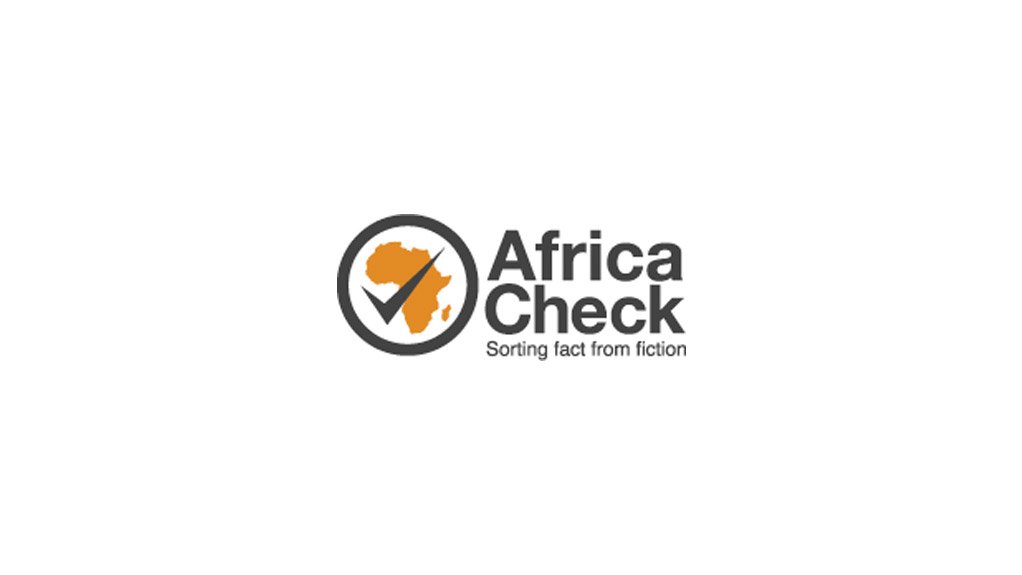The South African government recently warned its nearly 400 000 Twitter followers to avoid alcohol.
“It weakens the immune system!” the tweet claimed. “Drinking alcohol makes it difficult for the body to fight infections like COVID-19.”
South Africa is currently under lockdown in an attempt to slow the spread of the virus. Lockdown regulations ban the sale and transport of alcohol.
Is the government’s claim that alcohol weakens your immune system backed by evidence? We checked.
Internal defence against infection
The immune system is an organism’s internal defence against infection. The human immune system is complex, using several mechanisms to prevent or fight disease.
When the immune system detects a foreign body – such as the new strain of coronavirus – it releases chemicals and specialised cells to try destroy it. There are many of these defence mechanisms, and they all work in different ways to destroy the invaders.
Alcohol and respiratory disease
Alcohol’s effects on the immune system have been known to experts for a long time, according to a 2015 issue of the journal Alcohol Research: Current Review. These include slower immune response and slower recovery rates.
Dr Katherine Jung is the director of the Division of Metabolism and Health Effects at the US National Institute on Alcohol Abuse and Alcoholism. She was also an editor of the 2015 Alcohol Research review.
She told Africa Check that alcohol misuse has both immediate and long term effects, saying it “suppresses the ability to defend against respiratory infection in the short term”. It does this not only by weakening immune cells, but by damaging some of the cells that line our airways and act as barriers to infection.
The long term effects of regular alcohol misuse include “increased risk for respiratory infections and for acute respiratory distress syndrome, with increased need for mechanical ventilation, prolonged ICU stay, and higher incidence of mortality”.
A Nigerian study in the African Journal of Biomedical Research found that these effects were especially pronounced if an alcohol user also smoked cigarettes.
Moderate drinking less harmful
Most research on the topic focuses on chronic alcohol use – drinking too much or too often. In contrast, a review in the British Journal of Nutrition looked at low to moderate alcohol consumption.
It found that regular consumption of small amounts of some alcoholic beverages, such as beer and wine, was not dangerous to the immune systems of otherwise healthy adults. This kind of drinking might even slightly improve resistance to some respiratory illnesses, the authors said. (Note: Two of the paper’s six authors indirectly received funding from the Spanish arm of the Brewers of Europe.)
But they added that the review’s findings didn’t apply to alcohol consumption in general. It advised children, pregnant people and the elderly against consuming alcoholic beverages. “Given the serious health risks associated with exceeding two drinks per day, increased alcohol consumption cannot be recommended,” even for healthy adults.
High levels of binge drinking in South Africa
Africa Check asked the Alcohol, Tobacco and Other Drug Research Unit, part of the South African Medical Research Council, about the claim.
The unit’s director, Prof Charles Parry, and consultant, Prof Neo Morojele, both stressed that most South African drinkers don’t use alcohol in moderation.
“Moderate drinking (however you define it) is relatively rare in South Africa,” Morojele told Africa Check. She said advice for moderate drinkers would apply to a minority of the population.
The World Health Organization has estimated that 69% of South Africans aged 15 or older were non-drinkers in 2018. This means they had not consumed alcohol in the year before the study was done.
But most (59%) of the South Africans who did drink engaged in “heavy episodic drinking”, or binge drinking. The WHO defines this as consumption of “60 or more grams of pure alcohol on at least one occasion at least once per month”.
By the WHO’s definition, a person is considered a binge drinker if they drink four 340ml bottles of Carling Black Label or 1.5 litres of Castle Lager in one sitting. If they prefer wine, this is equivalent to drinking about 600 millilitres of Graham Beck Chardonnay or Tassenberg (locally known as “Tassies”) in one sitting.
Even one drinking binge reduces immune response
Parry said that even a single episode of binge drinking impairs the immune system. He cited a study that found it caused a brief inflammatory immune response followed by an anti-inflammatory state in which many immune responses were suppressed.
These effects were found to last even after alcohol was no longer detectable in the blood of test subjects. As most South African drinkers tend to binge on alcohol, Parry said, an impaired immune system was “definitely an issue” for them.
Jung said there was “no precise answer to how much alcohol is required to impair immune function”, but stressed that even a single episode of heavy drinking had a negative effect.
Conclusion: Studies have found that alcohol reduces the immune system’s ability to fight disease.
The South African government has warned people to avoid alcohol during the Covid-19 pandemic, claiming that it weakens the immune system.
Several experts told Africa Check that the claim was correct, citing extensive research into the effects of alcohol on the immune system. In particular, heavy alcohol use has been shown to have negative long term effects on immune health. Data shows that most South Africans who use alcohol are binge drinkers.
There is some evidence that moderate alcohol consumption is harmless, but only in specific circumstances. Experts say the available research is not clear on how much alcohol a person could consume without damaging their immune system.
Researched by Keegan Leech, Africa Check, a non-partisan fact-checking organisation. View the original piece on their website
EMAIL THIS ARTICLE SAVE THIS ARTICLE
To subscribe email subscriptions@creamermedia.co.za or click here
To advertise email advertising@creamermedia.co.za or click here











